Normal Math Worksheets Activities With Answers for Ages 3-8
9 filtered results
-
From - To
Discover a variety of engaging normal math worksheets for children ages 3 to 8 that make learning fun and interactive! Our collection is designed to enhance foundational math skills, including counting, addition, subtraction, and problem-solving. Each worksheet includes answer keys for easy guidance and self-assessment, ensuring parents and teachers can track progress effectively. From colorful visuals to practical activities, these worksheets cater to diverse learning styles, helping young learners build confidence in their math abilities. Perfect for classroom settings or at-home learning, our resources inspire curiosity and a love for math, setting the stage for academic success. Explore our activities today!
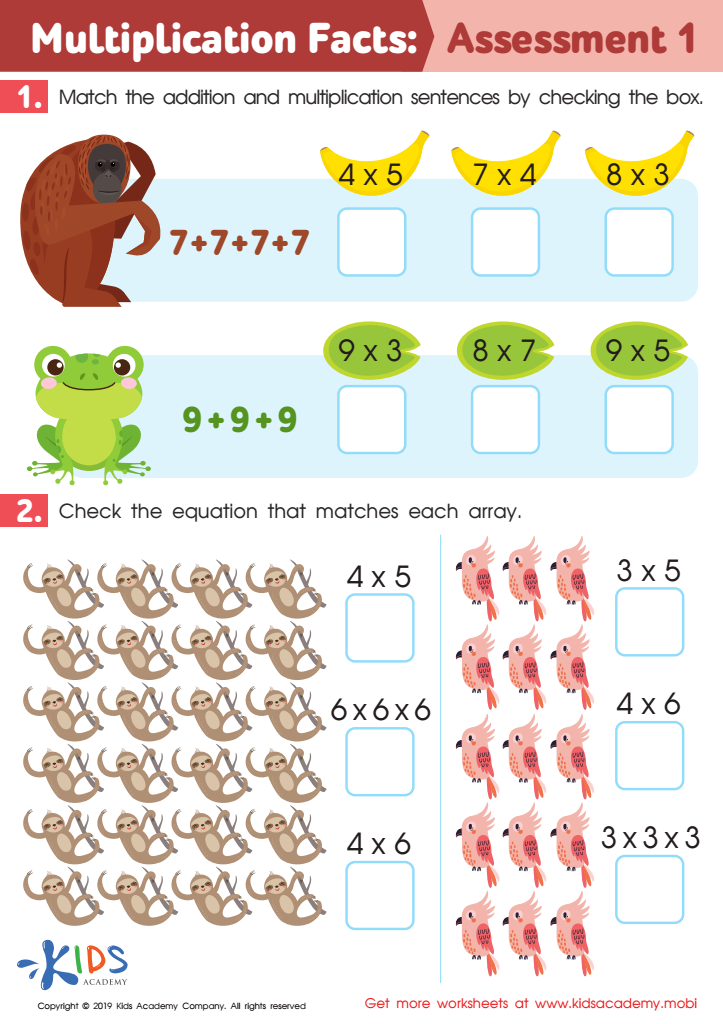

Multiplication Facts: Assessment 1 Worksheet
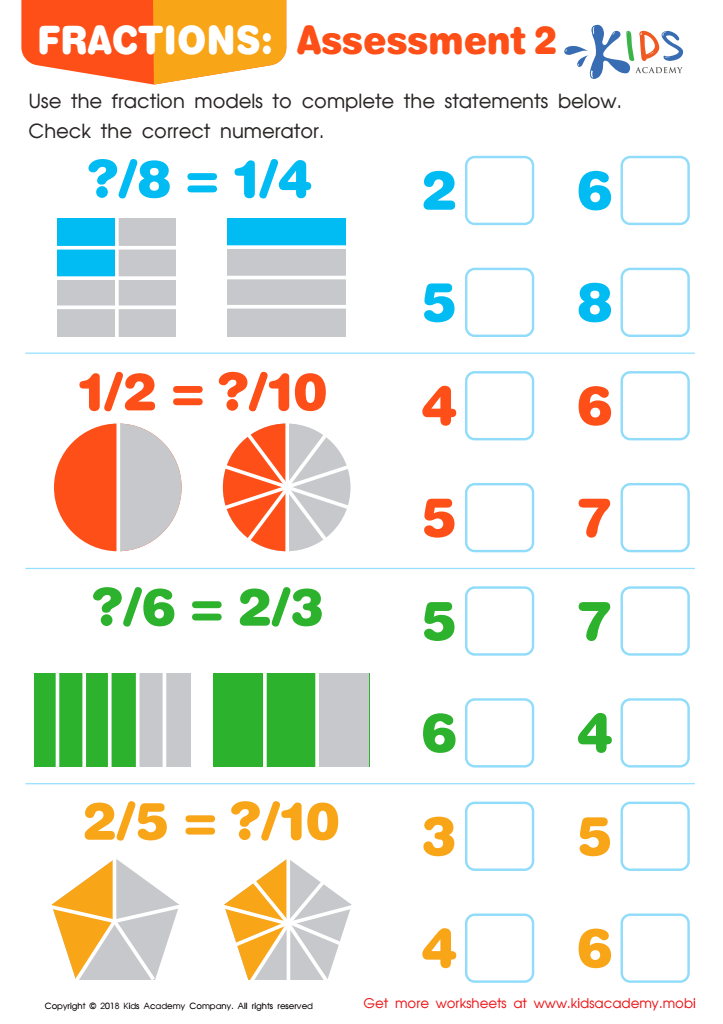

Fractions: Assessment 2 Worksheet
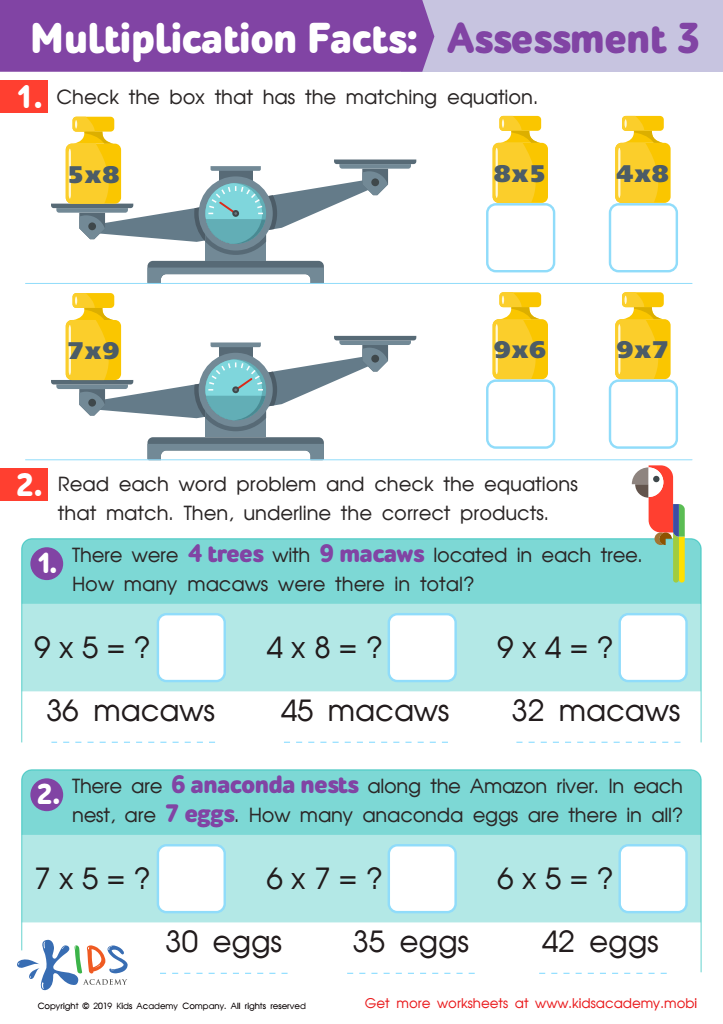

Multiplication Facts: Assessment 3 Worksheet
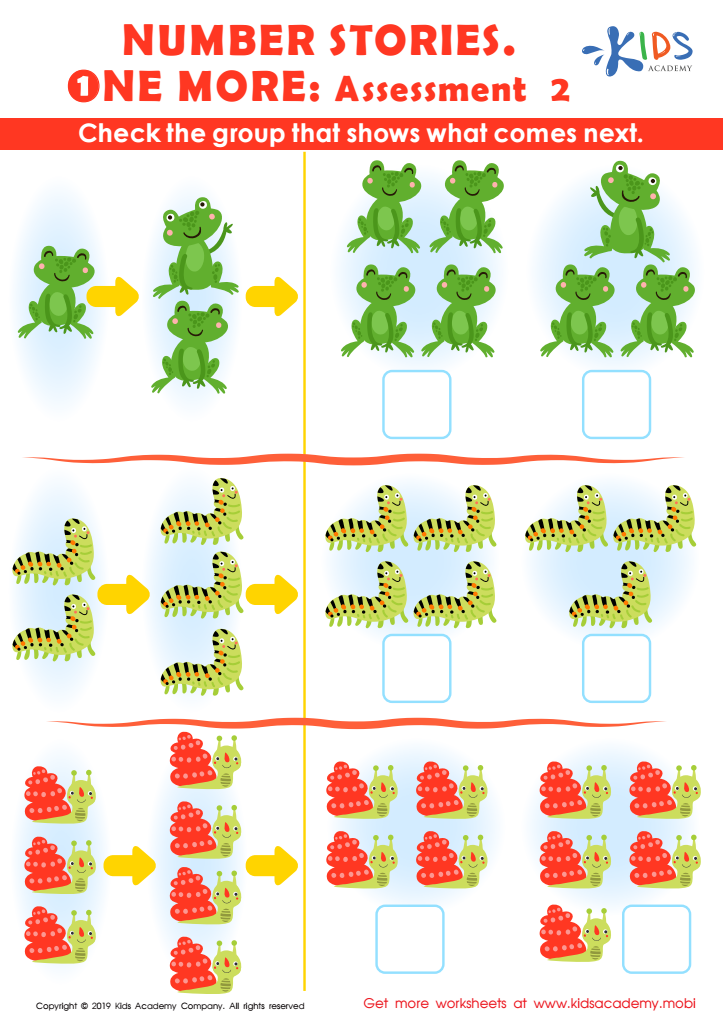

Number Stories One More – Assessment 2 Worksheet
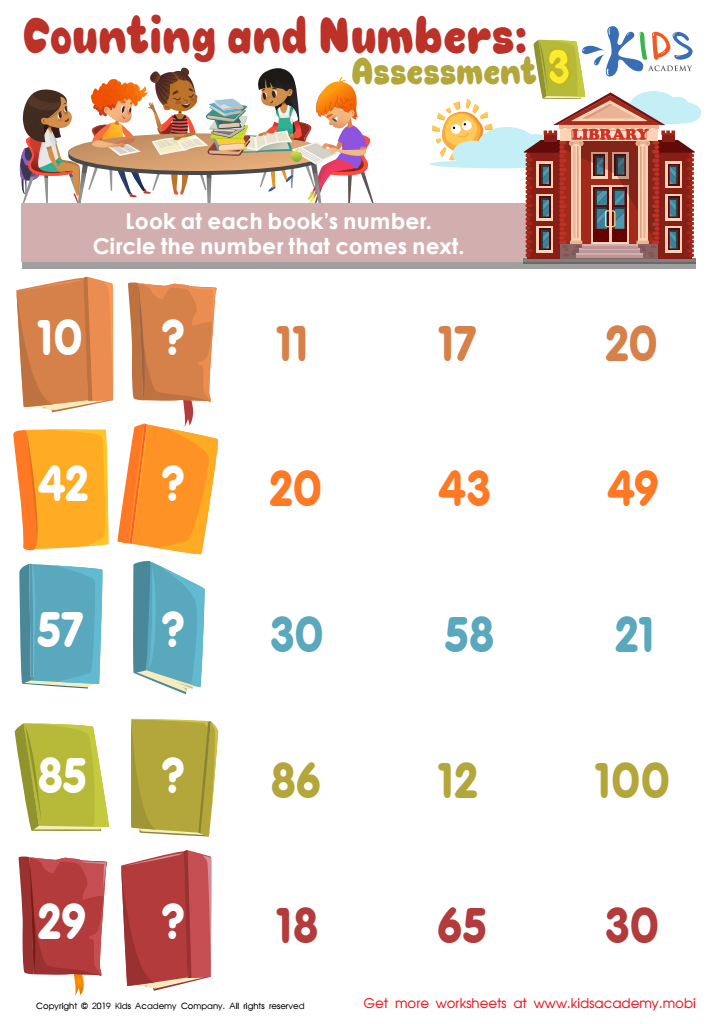

Counting and Numbers: Assessment Worksheet
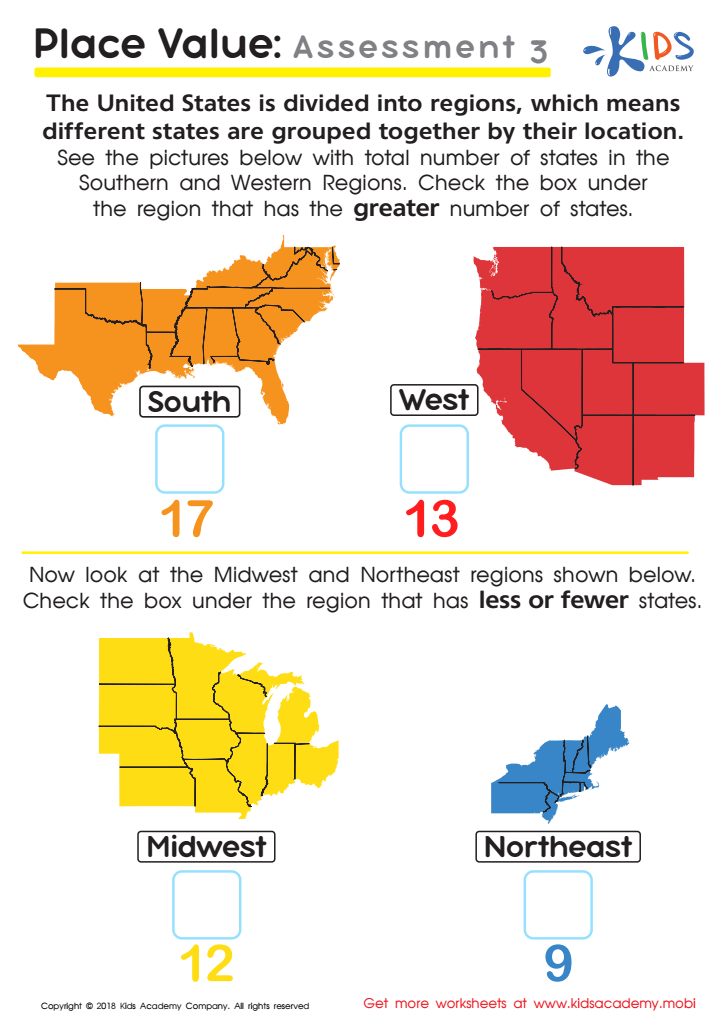

Place Value: Assessment 3 Worksheet


Word Problems: Assessment 2 Worksheet
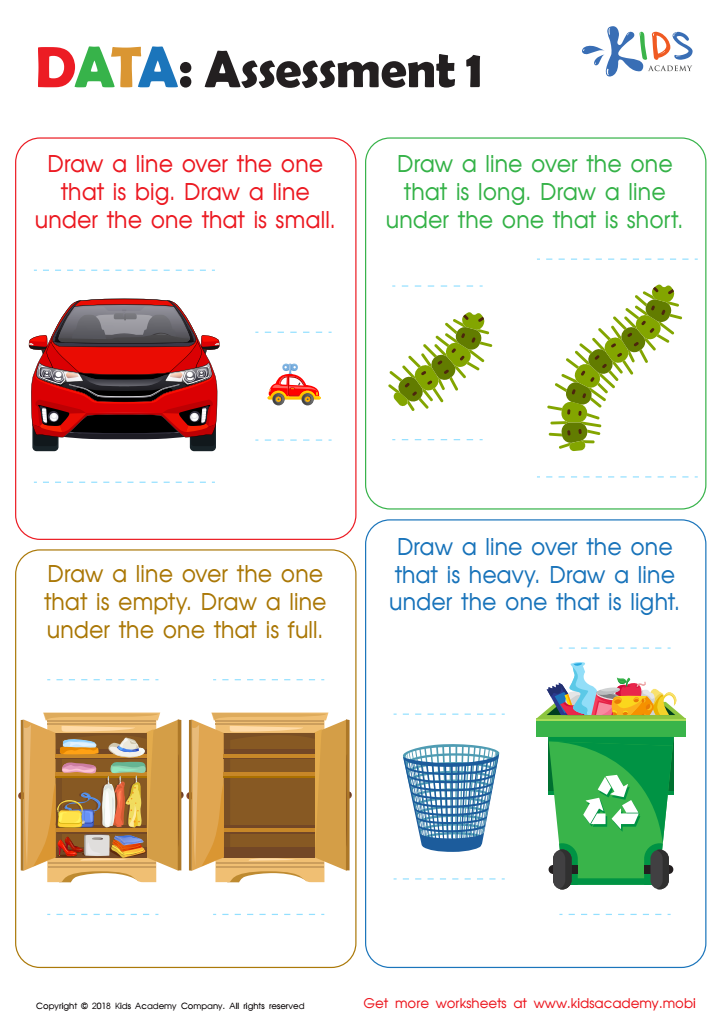

Data: Assessment 1 Worksheet
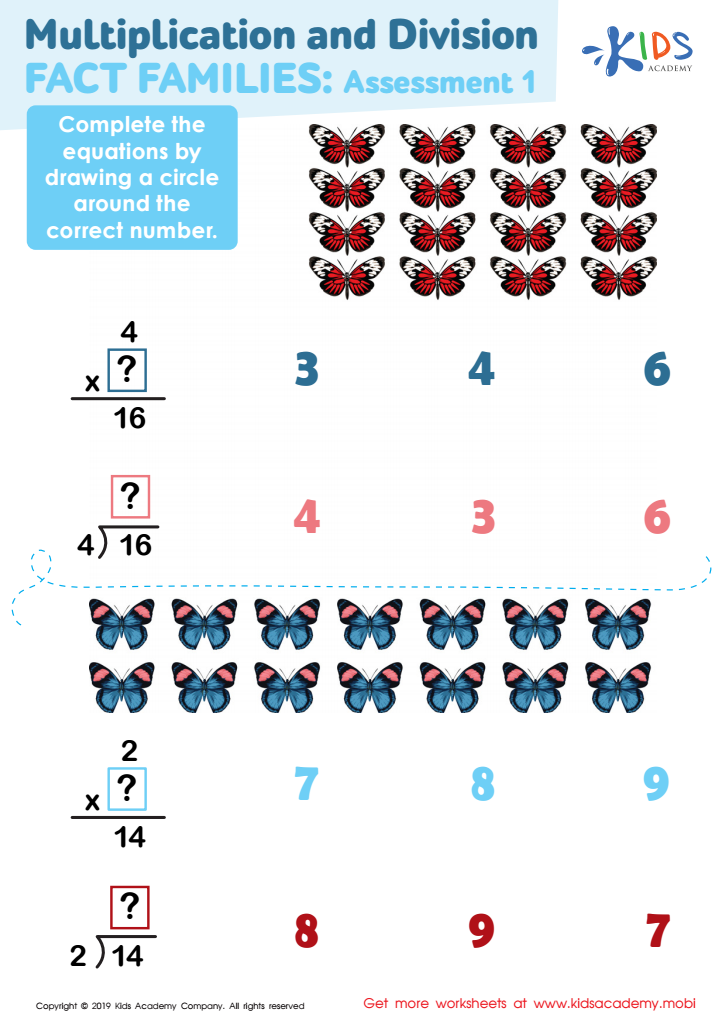

Multiplication and Division Fact Families Assessment 1 Worksheet
Normal math activities for children aged 3-8 are essential for fostering early mathematical understanding and critical thinking skills. This age group is formative in a child's cognitive development, and engaging them in structured yet fun math activities can set a strong foundation for future learning.
Firstly, these activities help children develop basic arithmetic skills, number recognition, and problem-solving abilities in a playful environment, making learning enjoyable and less intimidating. When parents and teachers provide interactive math experiences, such as counting games or pattern activities, they encourage active participation and a love for learning.
Moreover, early math skills directly correlate with overall academic success. Children who engage in tailored math activities demonstrate improved reasoning abilities and confidence, benefitting their performance in later, more complex subjects.
Additionally, using activities with answers allows parents and teachers to monitor progress effectively. They can assess a child's understanding and identify areas needing improvement, thereby tailoring their approach to better support each child's unique learning journey. In essence, normal math activities provide vital opportunities for cognitive growth, ensuring children are well-prepared for future academic challenges while fostering a lifelong appreciation for mathematics.

 Assign to My Students
Assign to My Students
















